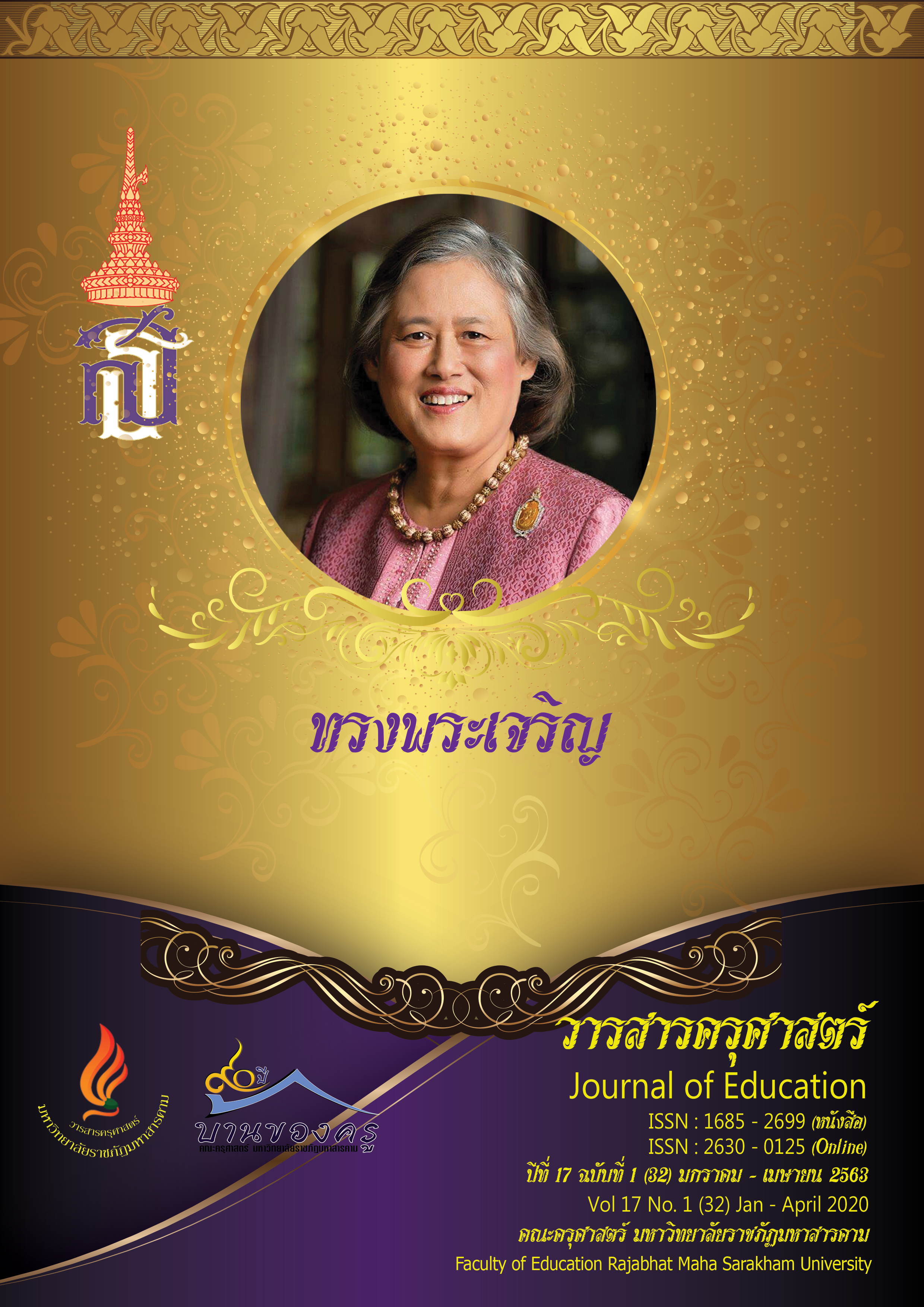Development of Analysis Teamwork Web-Based Learning Model to Enhance Analysis Thinking Ability and Teamwork for Undergraduate Students
Main Article Content
Abstract
The purposes of this research were to 1. Develop of analysis teamwork web–based learning
model and 2. Evaluate of analysis teamwork web–based learning model to enhance analysis
thinking ability and teamwork for undergraduate students. The sample group were 12 participants
which were 3 analytical experts, 3 teamwork experts, 3 online teaching experts and 3 evaluation
experts by purposive sampling technique and 5 professionals in the assessment model. The
research instrument was in-depth interview. Statistical data analyses were mean and standard
deviation.
The result of research were as follows: 1) Effects of analysis teamwork web-based learning
model consisted of 6 steps as step 1 content teaching; step 2 Organize a team by people mixed-up
of 4-5 talented people; step 3 work together in the group; step 4 KWDL competition; step 5
presenting the work; and step 6 Given award to the winner team. 2) Effects of analysis teamwork
web-based learning model evaluated at the highest reasonable level. ( = 4.54, S.D = 0.52)
Article Details
ข้อกำหนดเบื้องต้นที่ผู้นิพนธ์(ผู้ส่งบทความ) ควรทราบ
1. ผู้นิพนธ์ที่ประสงค์จะลงตีพิมพ์บทความกับวารสาร ตั้งแต่เดือนมกราคม 2563 เป็นต้นไป ให้ใช้รูปแบบใหม่ (Template 2563) โดยสามารถดูตัวอย่างได้ที่เมนู GUIDELINES
2. จะตีพิมพ์และเผยแพร่ได้ ต้องผ่านการประเมินจากผู้ทรงคุณวุฒิ (Peer Review)
3. การประเมินบทความโดยผู้ทรงคุณวุฒิ (Peer Review) เป็นแบบ Double Blind
4. การอ้างอิงบทความใช้หลักเกณฑ์ APA (American Psychological Association) คลิก
5. บทความถูกปฏิเสธการตีพิมพ์ ไม่ผ่านการประเมิน ผู้นิพนธ์ขอยกเลิกเองหรือชำระเงินก่อนได้รับการอนุมัติ ทางวารสารไม่มีนโยบายการคืนเงิน
References
ธันว์ธิดา วงศ์ประสงค์. (2558). ติดอาวุธทักษะการเรียนรู้เพื่อการมีงานทำ. จดหมายถึงสมาชิก สสค, 190.
พิสุทธา อารีราษฏร์. (2551). การพัฒนาซอฟต์แวร์ทางการศึกษา. มหาสารคาม: คณะครุศาสตร์ มหาวิทยาลัยราชภัฏมหาสารคาม.
วรพจน์ วงศ์กิจรุ่งเรือง และอธิป จิตตฤกษ์. (2554). ทักษะแห่งอนาคตใหม่ : การศึกษาเพื่อศตวรรษที่ 21.กรุงเทพมหานคร: สำนักพิมพ์ Open.
สถาบันเพิ่มผลผลิตแห่งชาติ. (2550). Behind the scenes TQC winner 2005. กรุงเทพมหานคร:สถาบันเพิ่มผลผลิตแห่งชาติ.
สำนักงานส่งเสริมสังคมแห่งการเรียนรู้และคุณภาพเยาวชน. (2559, 24 มกราคม). แบงก์โลกชี้บัณฑิตไทยมีมากขึ้นแต่คุณภาพลดลง. สืบค้นจาก http://www.admissionpremium.com.
เสาวณี จันทะพงษ์. (2554). การขาดแคลนแรงงานไทย : สภาพปัญหา สาเหตุและแนวทางแก้ไข. ถ่ายเอกสาร.
Asian Development Bank (ADB). (2011). Free trade agreements database for Asia. Asia Regional Integration Center. Retrieved from www.aric.adb.org/ftatrends.php
Hursh, D. (2016, 23 September). Neoliberalism and the control of teachers, students,and learning: The rise of standards, standardization, and accountability.Retrieved from http://clogic.eserver.org/4-1/hursh.html
Yarbrough, D. B., Shulha, L. M., Hopson, R. K., and Caruthers, F. A. (2011). The program evaluation standards: A guide for evaluators and evaluation users (3rd ed.). Thousan Oaks, CA: Sage.


